Suchergebnisse für "Factsheet%3A Energietechnologien gestalten%2C die f%C3%BCr alle sinnvoll und nutzbar sind"
IEA Wind - Annual Report 2014
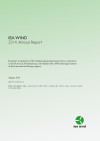
Herausgeber: PWT Communications, LLC für IEA Wind Energy Systems
Englisch, 200 Seiten
Downloads zur Publikation
IEA-Wind Annual Report 2012
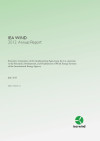
Herausgeber: International Energy Agency
Englisch, 172 Seiten
Downloads zur Publikation
IEA PVPS Annual Report 2015
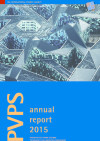
Herausgeber: IEA Photovoltaic Power Systems Programme (PVPS),
Englisch, 130 Seiten
Downloads zur Publikation
IEA AMF - Newsletter 2/2013
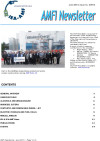
Herausgeber: International Energy Agency - Advanced Motor Fuels
Englisch, 14 Seiten
Downloads zur Publikation
Auszeichnung ENERGYbase
ENERGYbase mit dem 1. Österreichischen GreenBuilding-Award ausgezeichnet
7. Österreichische Photovoltaik Tagung
Veranstaltungsunterlagen jetzt verfügbar!
IEA-GHG Annual Review 2012
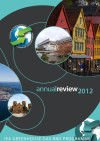
Herausgeber: International Energy Agency - Greenhouse Gas R&D Programme
Englisch, 36 Seiten
Downloads zur Publikation
IEA EBC Annual Report 2014
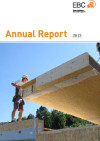
Herausgeber: IEA-EBC Programm
Englisch, 58 Seiten
Downloads zur Publikation
IEA-HPP Annual Report 2014
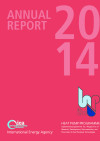
Herausgeber: IEA Heat Pump Programme (HPP)
Englisch, 24 Seiten
Downloads zur Publikation
IEA EBC Annual Report 2013

Herausgeber: IEA-EBC Programm
Englisch, 56 Seiten
Downloads zur Publikation
IEA Tasks & Annexes
Tasks & Annexe aus den Technolpgieprogrammen der Internationalen Energieagentur (IEA)
Baubook plus
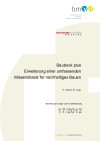
Erweiterung einer umfassenden Wissensbasis für nachhaltiges Bauen
Schriftenreihe
17/2012
H. Mötzl, B. Lipp
Herausgeber: BMVIT
Deutsch, 87 Seiten
Downloads zur Publikation
IMMO-RATE

Leitfaden für das Immobilienrating nachhaltiger Wohnbauten
Schriftenreihe
59/2006
T. Fröhlich, R. Lechner
Herausgeber: Österreichisches Ökologie Institut für angewandte Umweltforschung
Deutsch, 100 Seiten
Downloads zur Publikation
Deliverable B2: Integration Guideline (2015)
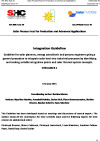
Herausgeber: IEA SHC Task 49
Englisch, 98 Seiten
Downloads zur Publikation
Passivhauskindergarten mit heilpädagogischer Integrationsgruppe
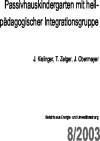
Schriftenreihe
08/2003
J. Kislinger, T. Zelger, J. Obermayer
Deutsch, 149 Seiten
Downloads zur Publikation
Kritische Rohstoffe für Hochtechnologieanwendungen in Österreich
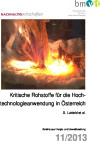
Schriftenreihe
11/2013
S. Luidold et al.
Herausgeber: BMVIT
Deutsch, 356 Seiten
Downloads zur Publikation
Faire Wettbewerbsbedingungen für "Virtuelle Kraftwerke
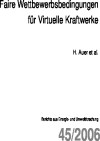
Schriftenreihe
45/2006
H. Auer
Deutsch, 107 Seiten
Downloads zur Publikation
Regenerative Energieversorgung einer Industrieregion
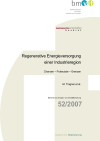
Chancen - Potenziale - Grenzen
Schriftenreihe
52/2007
M. Tragner et al.
Herausgeber: BMVIT
Deutsch, 180 Seiten
Downloads zur Publikation
M-DAB2: Material intensity of inner development - resource assessment and localization of urban development potentials
For the first time, the material intensity of inner development (in terms of material quantities) for different design variants was considered in the evaluation of inner development potentials. A set of methods for the holistic evaluation of potential areas and different development variants and scenarios for resource-saving inner development was created.
